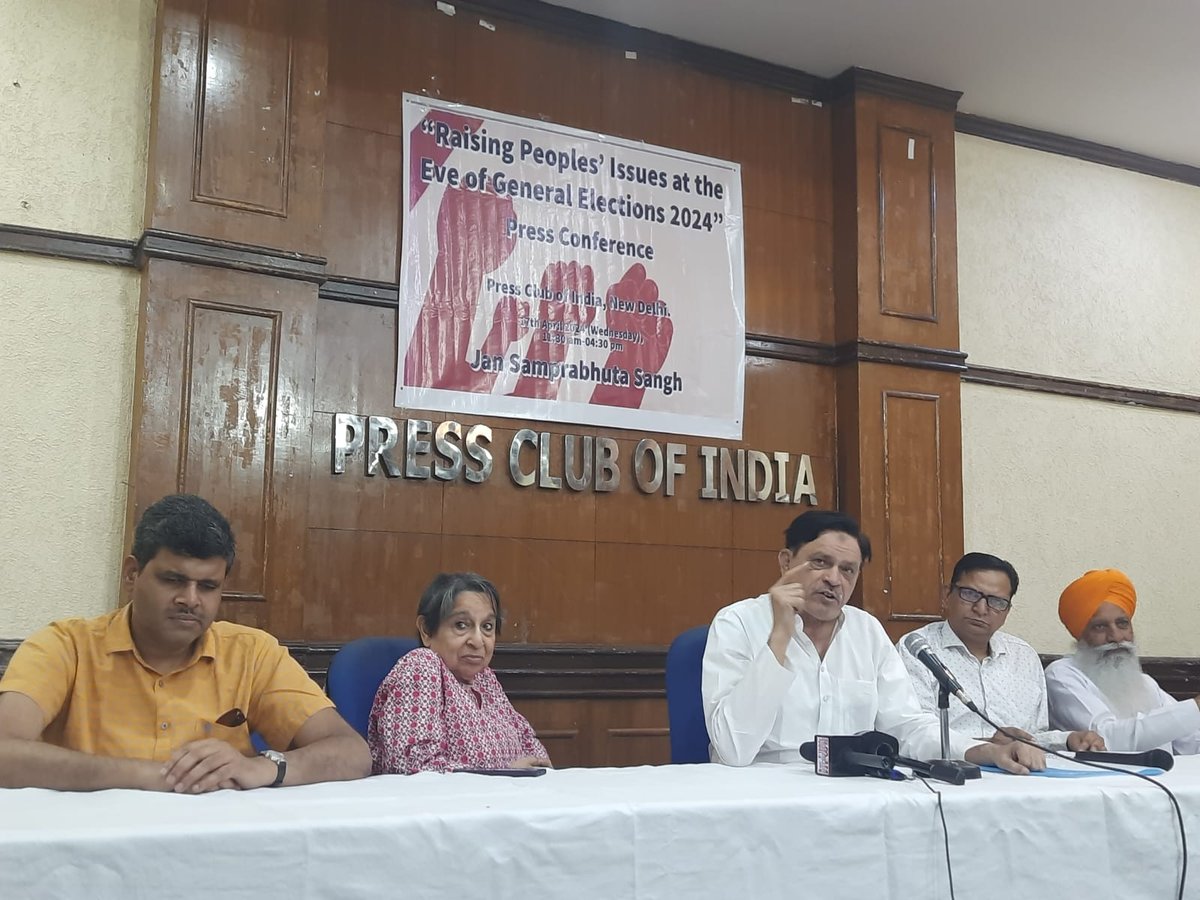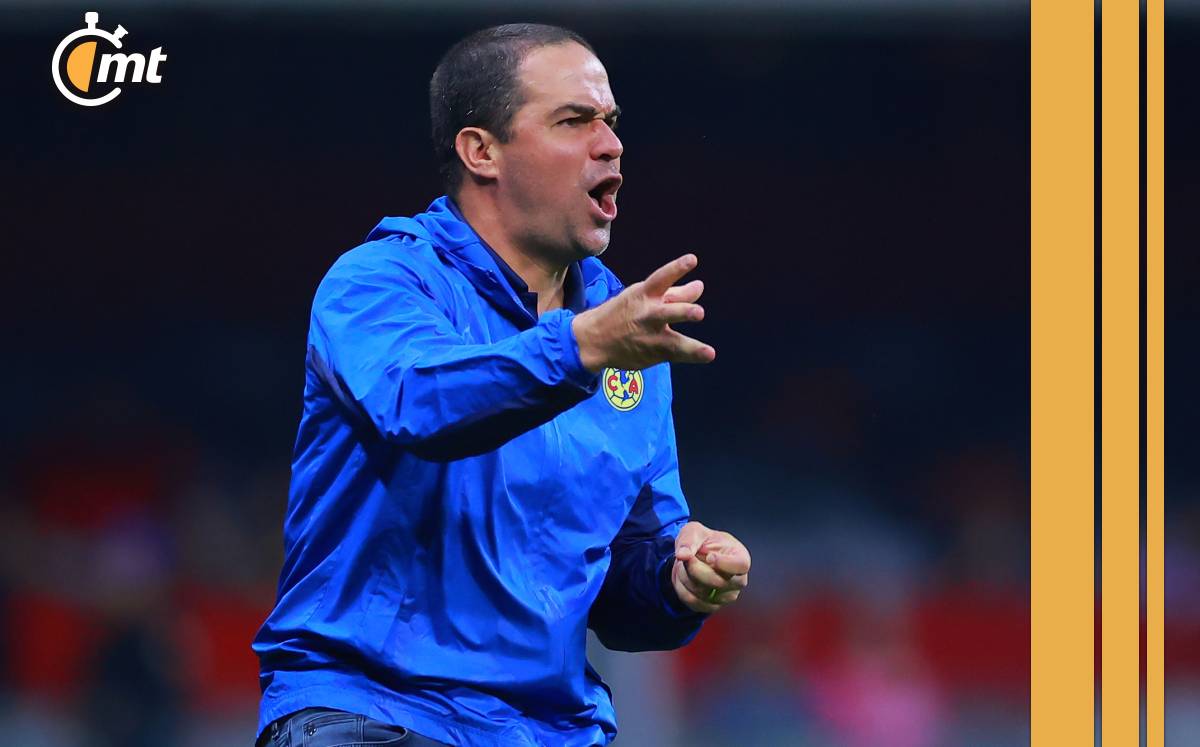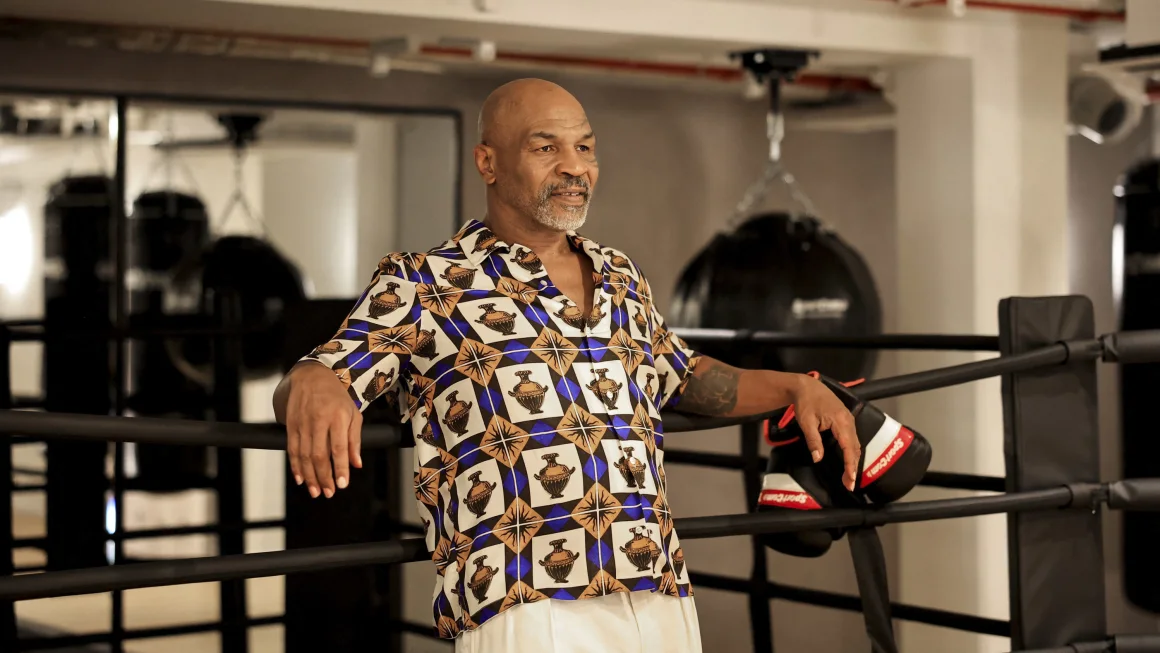New Delhi – As the nation gears up for the 2024 Lok Sabha elections, many intellectuals feel that the discourse is missing the actual issues plaguing the society. A divide exists between the ‘real India’ and the concept of ‘Viksit Bharat’; between the gatherings at Jantar Mantar and the ‘Man ki Baat’ broadcasts; between the principle of inclusive development (‘sabka sath-sabka vikas’) and the growing disparity; and between majoritarianism and pluralism.
To address this gap and bring back important narratives, various civil society organizations, intellectuals, and activists made a humble yet impactful effort to highlight the genuine concerns of voters that should be prioritized by the candidates in the upcoming elections.
A press conference, organized under the banner of Jan Samprabhuta Sangh, was conducted at the Press Club of India from 10:00 AM. Individuals from diverse backgrounds advocated for the issues they believe should be crucial in determining who will form the government this time.
The very first issue that came to light was the constant discussion regarding the Ram Mandir. “Secularism is missing from all the debates happening in mainstream media. Saare manav ko samaan dekho aur aapas mein batwara mat karo,” claimed T S Ahuja, a lawyer, and social worker.
“Let’s refrain from being divided by religion and caste. Our culture has always been rich and diverse, and historically, we have heeded the teachings of Sufi saints who advocated for unity.”
According to the speaker, there is a need to separate government from religion because once the government is formed, it is supposed to take care of the entire nation irrespective of their identity, which unfortunately is not happening anymore.
“BJP is further saying that they will change the constitution when they come to power and have the majority of seats,” continued the speaker. “This sets a dangerous precedent which I do not see anyone talking about.”
He further highlighted the fact that there is no Muslim Member of Parliament from the ruling party nor a Muslim cabinet minister. This, according to him, speaks volumes about the fact that one particular community is being treated as second-class citizens, with the ruling party deciding their representation is not important.
Ahuja’s words point towards the reality that after Minority Affairs Minister Mukhtar Abbas Naqvi tendered his resignation in 2022, the BJP found itself without a Muslim MP among its 395 Members of Parliament.
Despite being the ruling party in India, the BJP lacks representation from the minority community in either house of Parliament, and there are no ministers from the community in the Prime Minister’s Cabinet.
The next issue that came to light was education. Firoz Ahmed of Lok Shiksha Manch pointed out that while children have the ‘Right to Education’, declining standards in government schools are compelling parents to enroll their children in private schools. Unfortunately, many families find themselves unable to afford the higher fees associated with private education.
“Why is there even a concept of privatized education? Don’t all children deserve the best of resources? Why does this basic right depend on social background?” Ahmed raised such pertinent questions.
Prem Chand from Indian Public Service Employees Foundation added to the discussion that the issues of contractual work and pension also affect the common public. “Even the Supreme Court of India hires sanitation workers through a contractual system. Such systems ensure that the workers are not provided any job stability and can be removed at any time.”
“The workers also lack access to insurance, provident fund, and other such benefits. It is interesting to see how every party is invisibilizing contractual workers.”
Prem Chand also shed light on the fact that multiple labor unions and workers are protesting against the ‘New Pension Scheme,’ advocating for a return to the ‘Old Pension Scheme.’
The Old Pension Scheme (OPS), initiated in the 1950s, provided government employees with 50% of their last basic salary as a pension after retirement, along with Dearness Allowance (DA). No employee contributions were required, and the pension received was tax-free. However, it was discontinued in 2003 and reinstated in 2004.
In contrast, the New Pension System (NPS) mandates employees to contribute 10% of their basic salary and DA, with a 14% contribution from the government. The pension corpus is invested in approved funds, with returns linked to the stock market. Upon retirement, 60% of the corpus is tax-free, while the remaining 40% is taxable when invested in an annuity.
Government employees oppose NPS due to concerns about deductions from their salary, the lack of accurate employee records leading to irregular fund deposits, and the absence of Dearness Allowance. They advocate for the restoration of OPS for a secure retirement.
Senior Journalist Daya Singh took over the mic to remind people of the recent expose regarding Electoral Bonds. Terming it as a ‘scam,’ he said that the Supreme Court’s decision to call the donations unconstitutional already points towards the government taking the constitution into their own hands and molding it according to their own benefit.
Professor Jeetendra Meena then took to the podium, his emotional yet assertive voice echoing through the halls of the press club. The professor, who hails from the Adivasi community, questioned all mainstream political parties for avoiding talking about the Adivasis.
Expressing his anger on the issue of Ladakh, he brought the people’s attention to the continuous protests that have been happening there. Protests in Ladakh are urging for statehood and constitutional protections under the Sixth Schedule for the Union Territory.
The region experienced a widespread shutdown in the last two months as thousands joined marches, advocating for statehood and constitutional protections under the Sixth Schedule. Ladakh activist Sonam Wangchuk had initiated a 21-day hunger strike to demand power devolution and constitutional protections, highlighting the threat of external influence endangering their tribal identity.
He then shifted the discussion to Jammu and Kashmir, highlighting the militarization of the region and advocating for peace. From there, the conversation turned to Chhattisgarh and the tribal population facing atrocities on a regular basis. “Recently, according to a media headline, the police had gunned down ‘Maoists’ in the region. Tell me, who gets to verify if they were actually insurgents or some common tribals?” the professor asked.
He further brought up the topic of Manipur, expressing dissatisfaction with the Prime Minister’s lack of visits to the state. “But Home Minister Amit Shah recently went there for an election rally, held in the capital of Imphal.”
“Could he not have gone a few more kilometers deeper into the state to see the condition of the common people who are facing violence on a daily basis?” he questioned.
You can also join our WhatsApp group to get premium and selected news of The Mooknayak on WhatsApp. Click here to join the WhatsApp group.



